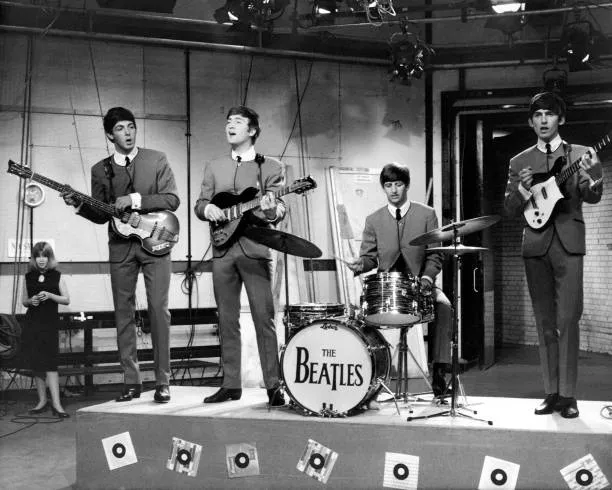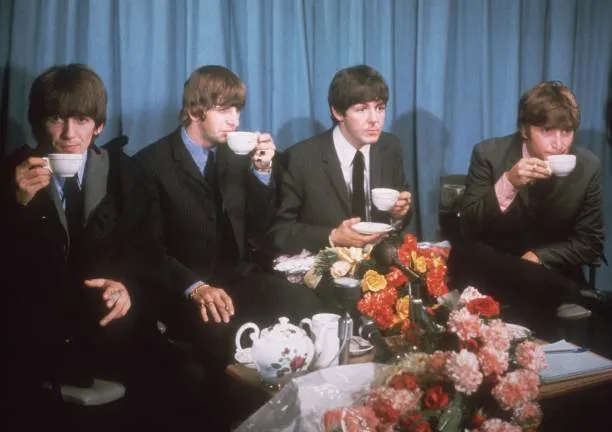The Beatles remain a cornerstone of music history, continually inspiring millions around the globe with their innovative sound and profound lyrics.
This iconic quartet—John Lennon, Paul McCartney, George Harrison, and Ringo Starr—transcended boundaries and changed the face of popular music forever.
To truly appreciate the depth of their influence, let’s explore five fascinating facts about The Beatles that spotlight their exceptional journey and enduring legacy.
1. The Beatles' Formation and Early Years

The story of The Beatles begins in Liverpool, England, in 1960. Originally formed as the Quarrymen, the band underwent several lineup changes until they found the winning combination of John Lennon, Paul McCartney, George Harrison, and Ringo Starr.
The Quarrymen to The Beatles
John Lennon first met Paul McCartney at a church fair in 1957. Impressed by McCartney's musical talent, Lennon invited him to join his band, the Quarrymen.
George Harrison, a friend of McCartney’s from school, soon auditioned for the group and was accepted for his remarkable guitar skills.
The lineup evolved through multiple changes, but it was not until 1962, when Ringo Starr replaced Pete Best as the drummer, that the iconic lineup of The Beatles was complete.
Early Days in Hamburg
Before becoming household names, The Beatles honed their skills by performing lengthy sets in Hamburg, Germany.
This period was formative; they played for hours on end, perfecting their craft and developing the tight-knit chemistry that would drive their future success.
These marathon performances helped them build endurance and versatility, allowing them to experiment with various music styles that later influenced their recordings.
2. The Beatles' Impressive Discography

One cannot discuss The Beatles without mentioning their prolific output. From 1962 to 1970, they released an astounding number of records, making their discography a testament to their versatility and creativity.
Albums and Singles
The Beatles released 12 studio albums, 13 extended plays (EPs), and 22 singles during their active years. Additionally, they have one compilation album, "The Beatles 1," which features 27 of their number-one hits.
Their debut album, "Please Please Me," was recorded in a single marathon session and kick-started Beatlemania.
Their discography is a roadmap of their evolving sound and maturity. "Sgt. Pepper's Lonely Hearts Club Band," released in 1967, is often considered one of the greatest albums of all time, showcasing the band's experimental edge.
Albums such as "Revolver" and "The White Album" highlighted their musical evolution, with each member contributing distinctively to their sound.
Their final studio album, "Let It Be," marks the end of their official discography in a poignant way, even though "Abbey Road," recorded before "Let It Be," was the last album they worked on together.
3. The Beatles' Legacy and Critical Acclaim

Rolling Stone magazine declared The Beatles the best artists of all time in 2004, a title that echoes their monumental impact on music and culture.
Their innovation in the recording studio, pioneering use of unconventional instruments, and genre-blending styles continue to inspire countless artists across generations.
Genre-Blending and Innovation
The Beatles are renowned for their ability to seamlessly incorporate a variety of musical genres into their work.
They did not confine themselves to the limits of rock and roll; instead, they explored classical music, Indian music, psychedelia, and even avant-garde techniques.
Their 1966 album "Revolver" includes groundbreaking tracks like "Tomorrow Never Knows," which features backward tapes and innovative studio effects.
Cultural Impact
The band's influence extended beyond music, profoundly affecting film, fashion, and social movements, making significant contributions to 1960s counterculture.
They helped shape the decade's social revolutions, including the peace movement and the rise of youth culture. Their style evolution—from their clean-cut suits and mop-top haircuts to their psychedelic attire—mirrored and influenced societal changes of their time.
4. Iconic Album Covers and Visual Legacy

The Beatles' album covers are as legendary as their music, often reflecting the cultural and artistic zeitgeist of their era.
"Sgt. Pepper's Lonely Hearts Club Band"
The cover of "Sgt. Pepper's Lonely Hearts Club Band" is a vibrant collage of celebrities, historical figures, and even wax figures of The Beatles themselves. This iconic cover is a visual feast that has become a cultural landmark.
"Abbey Road"
The "Abbey Road" album cover, featuring the band members walking across a zebra crossing, is perhaps the most famous album cover in history.
This simple yet impactful image is so iconic that the crossing itself has become a popular tourist attraction, drawing thousands of fans each year who recreate the legendary walk.
Evolution in Fashion
The Beatles were also trendsetters in fashion. Their style evolution was rapid and reflective of broader cultural shifts.
Early in their careers, their clean-cut suits and mop-top haircuts became synonymous with the band. However, as they delved into psychedelia and embraced the counterculture of the 1960s, their attire transformed.
Bright colors, eclectic patterns, and Indian-inspired clothing became part of their visual identity, influencing the fashion of the era.
5. Innovative Recording Techniques and Studio Mastery

The Beatles were not just renowned for their performances; they were also pioneers in the recording studio. Their innovative approach to recording techniques redefined what was possible in music production.
Multitrack Recording
Under the guidance of their producer, George Martin, the band utilized multitrack recording to layer sounds, allowing for complex arrangements and revolutionary soundscapes.
Songs like "A Day in the Life" from the "Sgt. Pepper" album demonstrated their mastery of this technique.
Use of Unconventional Instruments
The Beatles were among the first Western artists to incorporate non-Western instruments into popular music.
George Harrison's fascination with Indian culture led him to introduce the sitar in songs like "Norwegian Wood (This Bird Has Flown)" from the "Rubber Soul" album.
This fusion added a new dimension to their music and showcased their willingness to experiment with different sounds.
Sound Effects and Studio Experiments
The Beatles were never afraid to push the boundaries of conventional recording techniques. "Tomorrow Never Knows," one of their most experimental tracks, used tape loops, backward recordings, and distorted vocal effects to create a psychedelic soundscape that was decades ahead of its time.
They also popularized the use of the Moog synthesizer, adding a futuristic element to their later works.
The Beatles’ Enduring Legacy
Decades after their breakup in 1970, The Beatles continue to captivate new generations of fans. Their music remains timeless, resonating with listeners of all ages.
The Beatles' story, from their formation in Liverpool to their global domination, is a testament to their creativity, innovation, and resilience.
Continuing Influence
Their influence persists in today’s music, as evident in the countless artists who cite The Beatles as an inspiration.
Modern musicians continue to cover their songs, by bringing The Beatles’ music to new audiences and ensuring their legacy endures.
Commemorations and Memorials
Commemorating the anniversaries of their album releases and marking significant moments in their history keeps their spirit alive.
Memorials and exhibitions dedicated to The Beatles, such as The Beatles Story museum in Liverpool, attract fans from around the world, making pilgrimages to learn about and celebrate the band’s extraordinary journey.
Celebrating The Beatles’ Legacy
The Beatles' magical journey from the clubs of Liverpool to the world's biggest stages is more than a music story; it's a narrative of cultural transformation.
By exploring these five fascinating facts, we gain a deeper appreciation of their unparalleled contributions to music and society.
Each song and album is a chapter in the story of a band that revolutionized the world of music and continues to inspire millions around the globe.
Understanding The Beatles’ impact enriches our appreciation not just of their songs, but of their enduring legacy as cultural icons.



